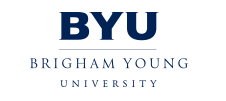Keywords
Experiential Learning, Student Development, student performance, Learning
Abstract
When my sister Becky (the seventh child in our family) started school, I knew her first day would be different from our other first days of school. Becky first day wouldn’t be strange because we were in a new city or, because my mother would be home with only two children for the first time in many years, but because Becky has Down Syndrome. Learning is difficult for Becky, and the learning process must be adjusted to help her understand concepts the rest of us can grasp easily; new teaching methods need to be developed to help people like Becky learn. However, new teaching methods can extend beyond those with special needs. Learning by experience, rather than rote study, can serve a major role in improving academic performance and teaching critical thinking skills. Experiential learning is found in various forms across the education system, from specialized elementary schools to career and technical education in high school. At Brigham Young University’s new Inspiring Learning program, incorporating experiential learning consistently shows positive results.
Recommended Citation
Workman, Max
(2024)
"Feeling It Out: Experiential Learning and Student Development,"
Marriott Student Review: Vol. 7:
Iss.
2, Article 9.
Available at:
https://scholarsarchive.byu.edu/marriottstudentreview/vol7/iss2/9
Marriott Student Review is a student journal created and published as a project for the Writing for Business Communications course at Brigham Young University (BYU). The views expressed in Marriott Student Review are not necessarily endorsed by BYU or The Church of Jesus Christ of Latter-day Saints.

